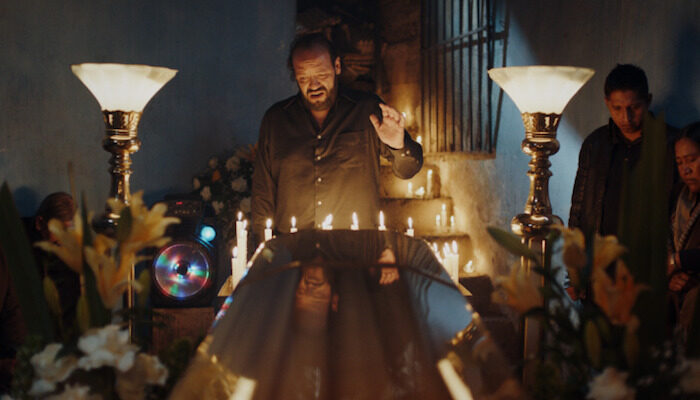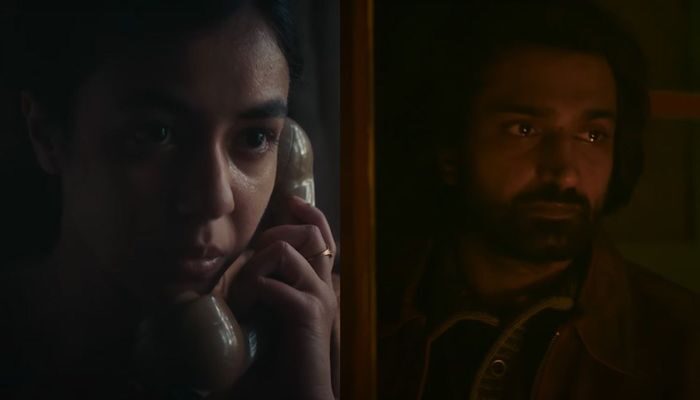Film Review: THE VISITOR: A Slice of Life with No Frills and Lots of Grit [Tribeca 2022]
The Visitor Review
The Visitor (2021) Film Review from the 21st Annual Tribeca Film Festival, a movie directed by Martin Boulocq, written by Martin Boulocq, and starring Enrique Araoz, César Troncoso, Svet Mena, Mirella Pascual, Teresa Gutierrez, and Romel Vargas.
Few stories could be more direct than that of The Visitor (“El Visitante“). This film looks at a slice of life straight on, full of grit and gusto, and calls out what it sees without fanfare.
The “Visitor” refers to a widower, Humberto, just released from prison, trying to reconnect with life in general, and especially with his teenaged daughter, Aleida, who is in the custody of her rich maternal grandparents after her father’s incarceration. The backstory is doled out at a very satisfying pace among the passages that show Humberto trying to make his way after lockup, and most of all, back into Aleida’s life.
In the meantime Aleida has been living in an upscale gated community with Pastor Carlos and Mrs. Elisabeth. Carlos enjoys a sterling reputation as a prominent Evangelical preacher, and he’s pretty damn good at it, too. And Carlos and Elisabeth are still, in Christian terms, something of an ideal — generous, forgiving, and supportive. They welcome Humberto back into their lives, as well as his daughter’s, with the condition that Aleida remain in their custody.
Humberto also humbly accepts Carlos’s gentle insistence that he join his congregation. More precisely, Humberto would rejoin, as once he had built quite reputation for his gospel singing. In fact, Humberto is a very fine tenor, professionally trained by way of Carlos’s generosity as his son-in-law, now reduced to performing dirges for pittance.
But Humberto’s income since his release is only the means to an end, that being full custody of Aleida. He knows as well as anyone the odds are stacked against him, but he is undaunted. He plays it cagey, too, now living in the looser prison of virtual poverty. With the help of some street-smart buddies, Humberto continues the hustle that supported him in prison: selling phone cards — possibly phony ones, though this isn’t made clear — even to recruiting Carlos’s favored disciples (who evidently are feeling the pinch themselves) into the pyramid.
The moral and ethical implications of these covert schemes don’t concern Humberto, however; they all converge into a singular goal: the unrestricted reunion with his daughter.
The prodigal dad seems to make a good showing at fatherhood. He is nonjudgmental, intuitive, and affectionate toward Aleida. He respects her decisions (maybe a little more than he should). As for Aleida herself, the natural parent/child bond slowly edges out her initial aloofness, helped along by Normita, her laid-back paternal grandmother, full of family lore about Aleida’s grandfather as a highly influential labor leader back in the day — quite a contrast to the to the wholesome sanctity of her grandparents’ home.
The highly romanticized portrayal of the paternal family she barely knows fascinates Aleida. As the father/daughter bond strengthens, her mother’s suicide is brought into the picture by way of her journal, Humberto’s precious keepsake from which he reads aloud the rosier of the entries to his daughter. These scenes in particular are so well directed and acted, that the lovely, drama-rich melancholy of the passages also reveal the intense feeling of grief the family has suppressed afterward.
This marks the beginning of a rift between Humberto and his in-laws. She demands to read the entire journal, which Humberto (perhaps unwisely) allows. With an adolescent’s fundamental aversion of obtuse authority, Aleida rebels. What starts as getting drunk with some Goth classmates, escalates to a restraining order slapped on Humberto, retaliation for challenging his in-laws for custody rights.
But Aleida’s most poignant defiance comes at the film’s finish. Humberto watches his daughter’s baptism from his prescribed distance in the hills outside the city. Once Aleida sees him, she fights the ritual dunking by Carlos tooth-and-nail. At that moment, was Aleida thinking of her other grandfather — Norma’s story of the mine workers’ courageous leader, fighting unfair oppression of the establishment?
Director Boulocq’s clever closing vision is among the best endings I’ve ever seen on film: Humberto pushing his motorbike up the slope toward three huge wind turbines side-by-side, like Titans on a South American Golgotha. A must-see.
Rating: 9/10
Leave your thoughts on this The Visitor review and the film below in the comments section. Readers seeking to support this type of content can visit our Patreon Page and become one of FilmBook’s patrons. Readers seeking more Tribeca Film Festival news can visit our Tribeca Film Festival Page, our Film Festival Page, and our Film Festival Facebook Page. Readers seeking more film reviews can visit our Movie Review Page, our Movie Review Twitter Page, and our Movie Review Facebook Page. Want up-to-the-minute notifications? FilmBook staff members publish articles by Email, Twitter, Facebook, Instagram, Tumblr, Pinterest, Reddit, and Flipboard.
Related Articles
FilmBook's Newsletter
Subscribe to FilmBook’s Daily Newsletter for the latest news!













